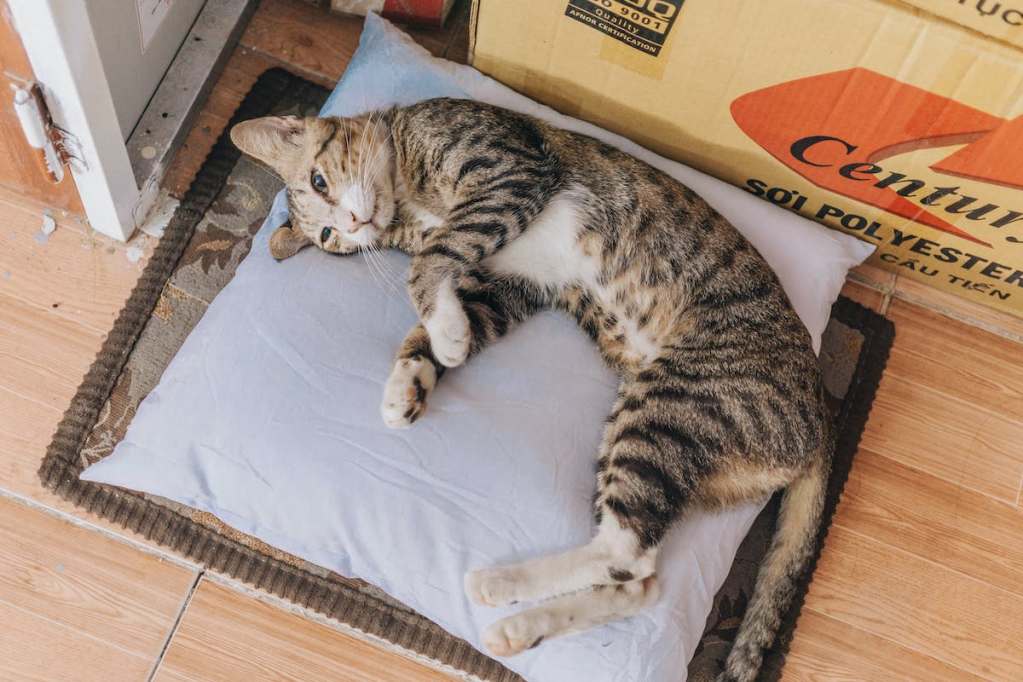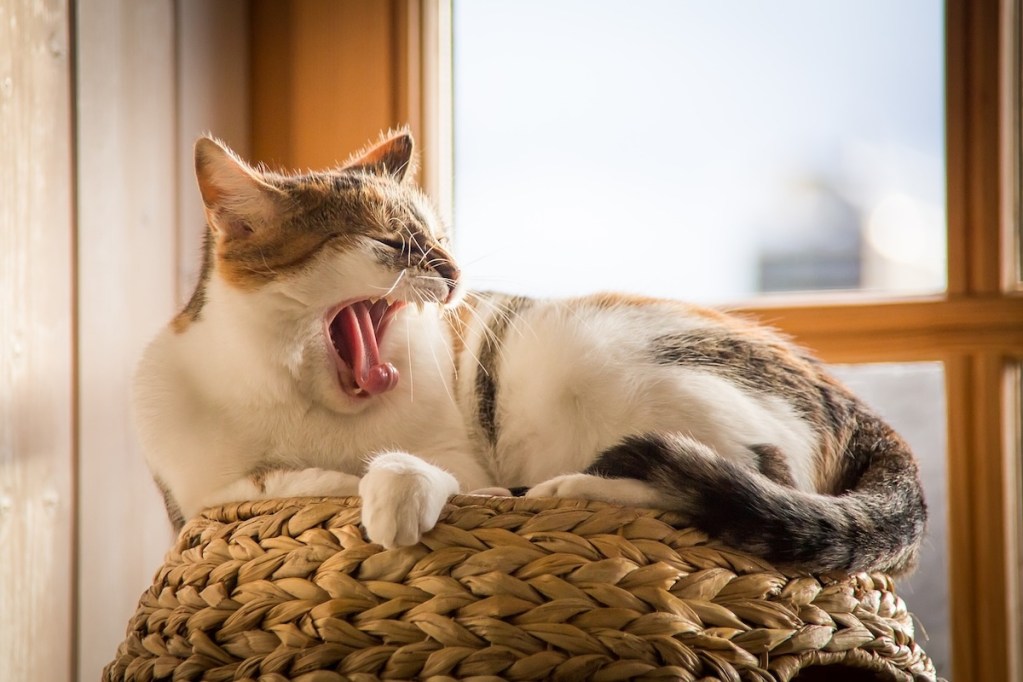We know all about dog tail wagging, and most pet owners can spot the difference between a happy twitch and a cautious one. But did you realize that cats use their tails to express themselves, too? Like with dogs, the cat tail swish could mean a few different things, and it’s important to have some sense of feline behavior — and your specific kitty — to decipher their movements. So why do cats wag their tails while lying down? We’ll walk you through the most common causes and when you might need to step in.

Why do cats wag their tails while lying down?
If you stumble upon your kitty lying down and only moving their tail, it’s probably because of one of these four reasons.
They feel happy or playful
You might see your cat lying lazily in the sun, but suddenly they give a little tail twitch as you approach. It’s not your imagination. They’re excited to see you and ready to play. Assuming you don’t note any signs of aggression (we’ll get to those later), you should head on over to pet your cat or grab their favorite toy and start a game.
It’s hunting time
We can all picture the lion stalking their prey while slowly moving their tail back and forth — your cat does this, too. Oftentimes, this one will happen when they’re lying on a perch or near a window and can spy on birds or small mammals in the yard. It could even be that they’ve spotted a fly and will pounce at any minute. All you need to do here is reach for your camera and enjoy your silly kitty at their best.
They’re stressed
A cat that feels stressed will often floof their tail and start to wag it. Kitties generally puff up their fur to appear larger and more menacing. This action may also combine with an arched back or a hiss. Alternatively, sometimes tail thumping comes from overstimulation. You’ll recognize pretty quickly which movements indicate fear and which mean fun.
They’re dreaming
Sometimes, you’ll observe your mouser twitch their tail while sleeping. It could come from a simple muscle spasm just like you get when you sleep (it also might mean they’re hunting down prey in their dreams). Additionally, your sleepy kitty may be, well, faking it. They might look asleep but are actually just resting and waiting for you to come over.
Most of the time, the tail twitch is nothing to worry about. You’ll quickly learn your animal and truly understand all their wacky behaviors. Since their tail swish often means a good thing, you can rest assured that it’s almost never a sign of distress. However, very rarely, a pet will engage in tail wagging when in pain. If you think that’s the cause, call your vet to discuss further.




